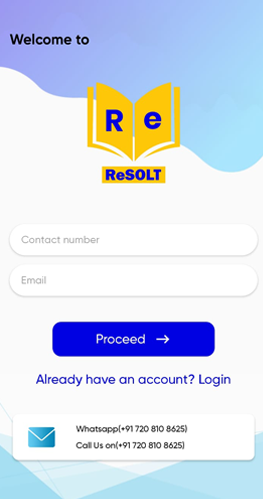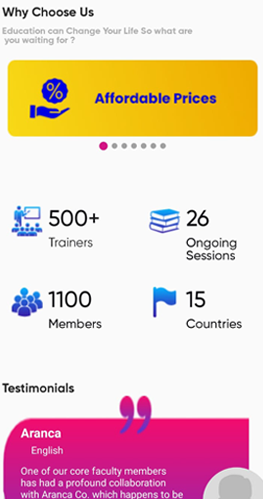One of the best things about learning a language is watching yourself improve over time. You learn more vocabulary, it takes you less time to understand what people are saying when they speak to you in the language, and you even learn to speak more quickly without pausing to think through each sentence.
The standard devised by the Common European Framework of Reference for Languages—which goes from level A1 to C2, in which you are already an expert—is the most widely used to categorize your level of English. The Instituto Cervantes grants the DELE Spanish diplomas, which are formal credentials that attest to your proficiency in the Spanish language.
In the twenty-first century, you must have at least a B2 level to be considered for a position in an international company where speaking a foreign language is a requirement.
Spanish is one of the most widely spoken languages in the world and learning to speak it fluently can open up numerous opportunities both personally and professionally. However, mastering a new language requires dedication, practice, and effective learning strategies. In this article, we will provide you with expert tips on how to learn to speak Spanish fluently and accelerate your language learning journey.
- Set Clear Goals
Start by defining your language learning goals. Determine why you want to learn Spanish and what level of fluency you want to achieve. Having clear objectives will help you stay motivated and focused throughout the learning process. You can also think about joining the best Spanish institute in Mumbai to make learning language easy and fun.
- Immerse Yourself in the Language
Surround yourself with the Spanish language as much as possible. Listen to Spanish music, podcasts, and radio shows. Watch movies, TV series, and videos in Spanish. Immerse yourself in the language to familiarize your ears with its sounds and rhythms.
- Take Formal Spanish Classes
Enroll in a Spanish language course in Mumbai or Spanish classes in Mumbai. Formal classes provide structure, guidance, and opportunities for interaction with a qualified instructor and fellow learners. They can help you build a strong foundation in grammar, vocabulary, and pronunciation.
- Practice Regularly
Consistency is key when learning a new language. Set aside dedicated time each day or week to practice Spanish. Practice speaking, listening, reading, and writing in Spanish to reinforce your skills and improve your fluency over time. You can also consider Spanish classes or Spanish courses to make your preparation strong.
- Engage in Conversations
Find opportunities to practice speaking with native Spanish speakers. Join language exchange groups, participate in conversation clubs, or connect with language partners online. Engaging in real-life conversations will help you gain confidence, improve your pronunciation, and expand your vocabulary.
- Read Spanish Literature
Start with simple books, articles, or blogs written in Spanish. Gradually increase the complexity of the texts as your reading skills improve. Reading in Spanish exposes you to different sentence structures, vocabulary, and cultural nuances.
- Keep a Vocabulary Journal
Maintain a vocabulary journal to record new words and phrases you encounter during your learning journey. Review and practice these words regularly to expand your vocabulary and enhance your communication skills.
- Travel to Spanish-Speaking Countries
If possible, travel to a Spanish-speaking country and immerse yourself in the culture and language. Interacting with locals and experiencing the language in its natural context will enhance your learning and provide valuable cultural insights.
- Practice Pronunciation
Pay attention to Spanish pronunciation and practice speaking the language aloud. Mimic native speakers, listen to audio recordings, and utilize pronunciation resources to refine your accent and intonation.
- Embrace Mistakes
Don’t be afraid of making mistakes. Embrace them as learning opportunities and use them to improve. Native speakers will appreciate your efforts to communicate in their language, even if you make some errors.
- Watch Spanish TV Shows and Movies with Subtitles
Watch Spanish content with subtitles to help you understand the language and context. Start with subtitles in your native language and gradually transition to Spanish subtitles as your comprehension improves. This technique helps you associate spoken words with their written forms and enhances your listening skills.
Conclusion:
Becoming fluent in Spanish is an achievable goal with the right approach and dedication. By implementing these expert tips into your language learning routine, you can accelerate your progress and develop strong communication skills.
We as a leading institute also offer online Spanish classes in Delhi and Spanish classes in Hyderabad.



















